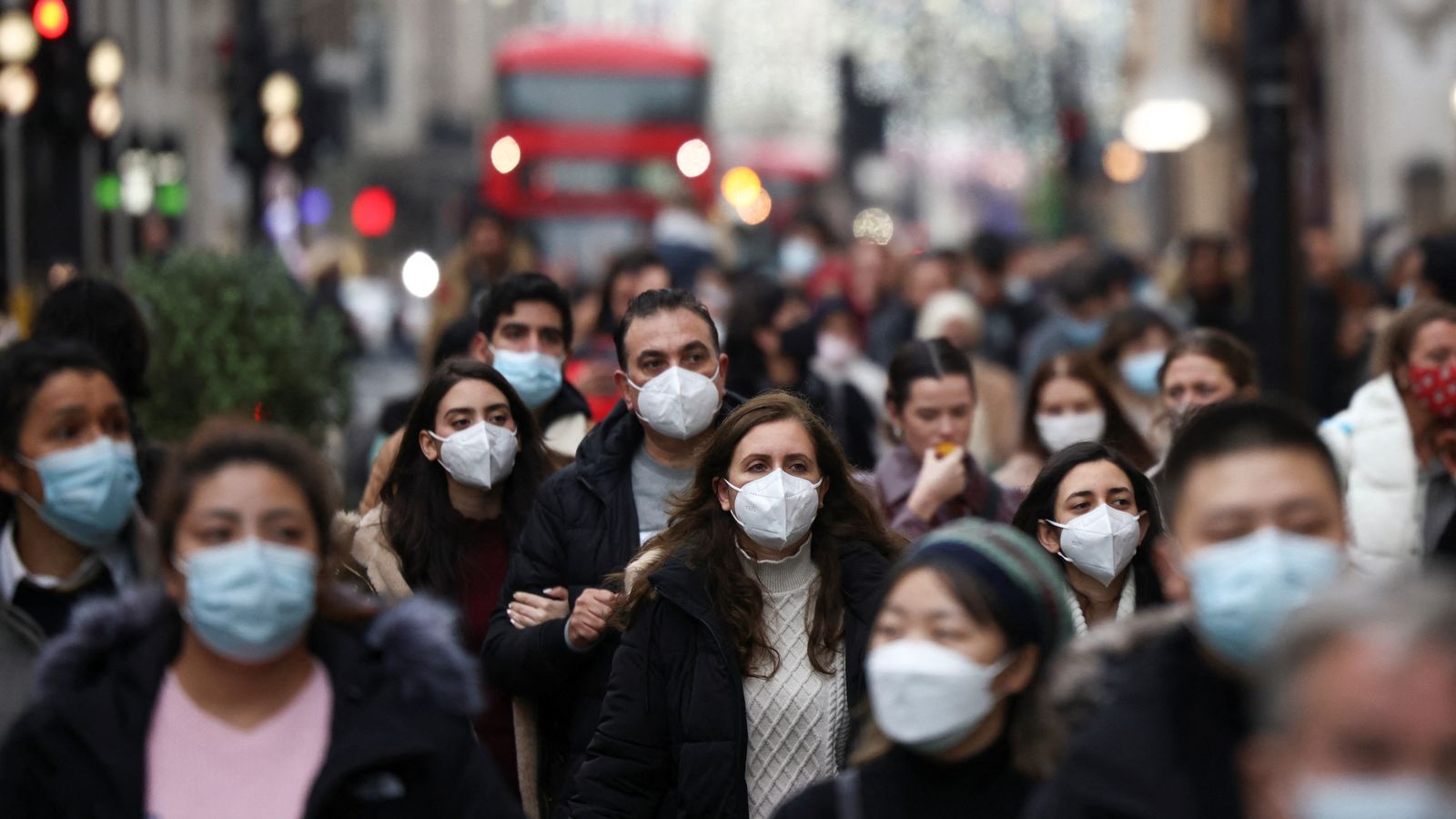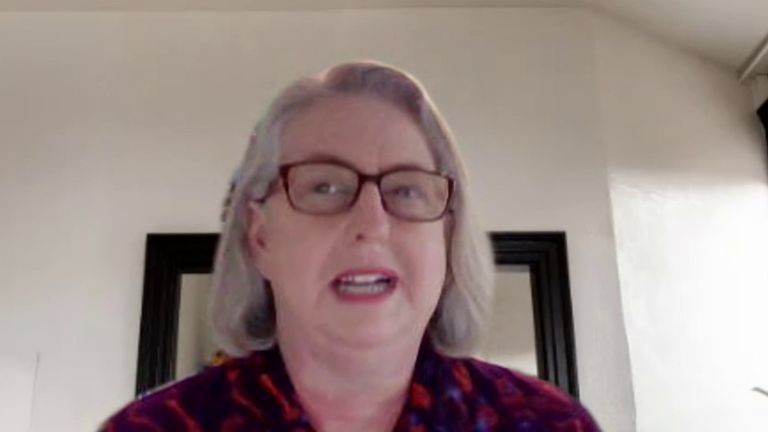A number of scientists have said that the UK should follow in the footsteps of the US and reduce the COVID self-isolation period to five days, in an effort to protect the NHS.
The US Centers for Disease Control and Prevention said on Monday that Americans who catch COVID and don’t have any symptoms only need to self-isolate for five days, so long as masks are worn for another five.
It has prompted similar calls in the England, despite the rules being relaxed slightly ahead of Christmas.
In England, those who have tested positive for COVID are able to leave self-isolation after seven days, as long they can produce two negative tests.
Despite Omicron being less severe in terms of its symptoms, it is more transmissible, meaning that some industries are struggling to cope due to the quarantine requirements – particularly the NHS, which at one point last week reported a 50% rise in staff absences.
A record number of people tested positive in the latest reporting period, with 117,093 new infections in England alone, as the new variant sweeps through communities, with up to 800,000 thought to be in isolation.
It’s led to calls for the isolation period to be further reduced, to get the economy moving again.
Professor Tim Spector from Kings College London, who runs a nationwide COVID symptoms study, tweeted on Tuesday in favour of the recommendation, saying it would “protect the economy”.
That was echoed by Paul Hunter, professor of medicine at the University of East Anglia, who told the BBC that he believes Omicron has become “effectively just another cause of the common cold”.
Follow the Daily podcast on Apple Podcasts, Google Podcasts, Spotify, Spreaker
“We’re going to have to let people who are positive go about their normal lives as they would do with any other cold.
“I think the whole issue of how long are we going to be able to allow people to self-isolate if they’re positive is going to have to be discussed fairly soon, because I think this is a disease that’s not going away.”
He did caveat his thoughts though, adding: “Maybe not quite just yet”.
Sir John Bell, regius professor of medicine at Oxford University, also piled on the pressure, telling the BBC’s Today programme that a negative test is a “better way to measure if we’re allowing people to go back into community” instead of isolation periods.
The president of the Confederation of British Industry (CBI), Lord Bilimoria, went further, pointing out to the Today programme that South Africa, which discovered Omicron through genetic sequencing, dropped the requirement to isolate altogether for those who are asymptomatic.
He added: “We have got to do everything we can to stop the disruption to our lives and to our livelihoods and to the economy in as safe a way as possible.
“We need people to isolate for as little time as possible.”
The Department of Health said: “Anyone who takes a negative lateral flow test on days six and seven of their self-isolation period can end their isolation early, following analysis by the UK Health Security Agency that this has a similar protective effect to a ten-day isolation without lateral flow testing.”

